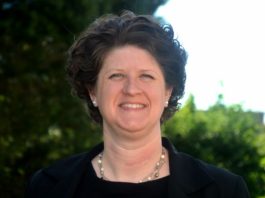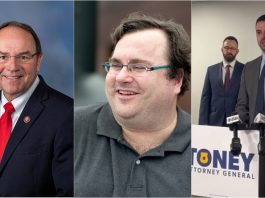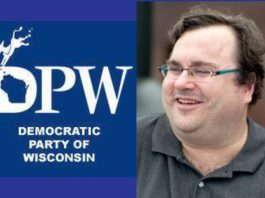By: Shale Horowitz
The Wisconsin legislature will soon vote on a proposed law that the IHRA definition of antisemitism be considered in applying existing Wisconsin antidiscrimination laws. The IHRA definition is currently used by the federal government and by 37 of the 50 states. Yet far left politicians and activists strongly oppose the law. Why? Because the IHRA definition covers not just the traditional antisemitism most common on the far right, but also the newer antisemitism more prevalent on the far left. Especially on college campuses, the far left and its Islamic extremist allies have so far largely gotten away with antisemitic law- and rule-breaking. Using the IHRA definition threatens to end this special treatment.
According to the IHRA definition, antisemitism involves hostile acts, lies, or double standards aimed at individual Jews, Jews as a group, or the Jewish state of Israel.
Examples include traditional slanders: “Making mendacious, dehumanizing, demonizing, or stereotypical allegations about Jews as such or the power of Jews as collective — such as, especially but not exclusively, the myth about a world Jewish conspiracy or of Jews controlling the media, economy, government or other societal institutions.” They also include hostile double standards aimed at Israel:
“Denying the Jewish people their right to self-determination, e.g., by claiming that the existence of a State of Israel is a racist endeavor.”
“Applying double standards by requiring of it a behavior not expected or demanded of any other democratic nation.”
Existing Wisconsin state laws and policies prohibit discrimination against racial, ethnic, national, and religious groups, including Jews. The proposed law directs that the IHRA definition be considered in assessing whether Jews were subject to such discrimination.
Why does Wisconsin need this law? Contemporary antisemitism, which exploded after Hamas’s October 7, 2023, attack, is largely driven by hostile double standards toward Israel. Again, this variant of antisemitism is more common on the far left than the far right, but the far left denies that it is antisemitism. Moreover, while it is true that antisemitic speech is ordinarily protected by the First Amendment, antisemitic speech or acts may also violate laws or policies, often by discriminatory targeting of Jews.
Events since October 7, 2023, demonstrate the need for the IHRA definition. At UWM, anti-Israel student groups publicly threatened that they would not tolerate Jewish students and groups supporting Israel’s existence on campus—regardless of whether the latter were actively supporting Israel in specific campus events or not. In addition to incidents of vandalism and an illegal encampment, there were two public events at which the anti-Israel individuals and groups disrupted the events and harassed and intimidated Jewish students and groups.
In the latter two cases, the UWM administration claimed that the actions were protected by the First Amendment. The UWM administration also claimed that the actions did not violate the UW non-academic code of conduct—even though the code of conduct specifically prohibits disruption, harassment, and intimidation.
Why would having a legal definition of antisemitism be helpful in getting UWM and other UW administrations to enforce the law and the non-academic code of conduct correctly and equally? Because the UWM administration claimed to me and other faculty and community members that they had no legal definition of antisemitism to operate with. This made it easier for them to claim that even activities interfering with the rights of others were protected by the First Amendment.
UWM’s police chief, David Salazar, Jr., in his August 1, 2024, public resignation letter, stated that he viewed the first of these harassment-and-intimidation incidents as antisemitic, but was overruled by UWM higher-ups:
“During the Spring of 2024, there were several antisemitic incidents on campus that the University leadership was reluctant to address even though they violated University policy. On April 19, 2024, the Milwaukee Jewish Federation and Hillel Milwaukee formally complained to Chancellor Mark Mone that students and community members were subjected to antisemitism and intimidation during a Jewish cultural event on campus. Chancellor Mone directly asked that I determine if the claims of antisemitism were true or exaggerated. I thoroughly investigated the incident and determined the claims of antisemitism were true. My conclusion that antisemitism was present on campus was challenged by Head Legal Counsel, Joely Urdan, but supported by Chia Vang, the Vice Chancellor of Diversity, Equity, and Inclusion.”
Again, no action was taken against the perpetrators in the referenced incident, on the ground that what they did was protected by the First Amendment.
State representatives pointed out in the committee hearing on the proposed law that such disruption, harassment, and intimidation would never have been viewed as protected speech had they been directed against other minority groups.
Suppose that student groups proclaimed that black-majority states alone ought to be destroyed along with their black populations; justified that goal by accusing only such states of “genocide” when their behavior was objectively far better than almost all other states defending themselves in similar conflicts; and set about harassing and intimidating African-American individuals and groups who did not agree with these hostile double-standards.
Suppose that Muslim-majority states and Muslim Americans, or India and Hindu Americans, were targeted in such ways. Does anyone doubt that the law and the code of conduct would be enforced to the maximum extent possible?
On October 22, at the State Capitol hearing on the bill, Wisconsin Representative Ryan Clancy proudly reported his participation in illegal encampments at UWM and elsewhere that used hostile double-standards to demonize Israel and its supporters. Clancy’s rhetoric—accusing Israel alone of genocide while saying nothing about its extremist enemies or about other states with worse records of protecting civilians—falls under the IHRA definition of antisemitism. However, contrary to what Clancy claimed, the proposed IHRA law doesn’t threaten his freedom to spout such rhetoric. It merely makes it more likely that laws and policies—such as those against illegal encampments on public property and against harassment and intimidation on campus—will be enforced in an equal manner.
State Representative Jim Piwowarczyk said at the hearing that people like Clancy would not support illegal encampments and harassment and intimidation conducted by white supremacists. Representatives of both parties should see the importance of equally enforcing Wisconsin laws and state policies. Discriminatory hate-fantasies are indeed protected free speech. But law-breaking, harassing, and intimidating Jews and others is and should be prohibited. The IHRA law will help make that happen.
Shale Horowitz is a political science professor at UWM. His views do not represent those of UWM.











